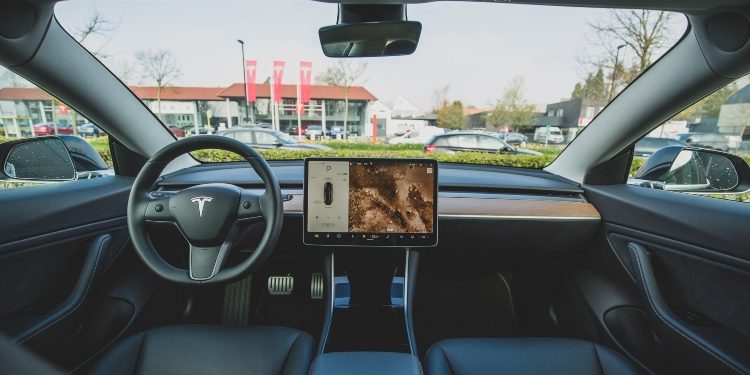Car finance is currently the most popular way to buy a car in Britain. It gives you more flexibility, more choice and frees you from fronting large amounts of cash at the forecourt. Knowing which type of vehicle finance is best for you can make all the difference.
Vehicle finance is not a one size fits all. You have several options to choose from, ranging from the popular hire purchase (HP) and personal contract purchase (PCP) to leasing and 0% finance deals.
Here we explain how each of the most popular vehicle finance works to help you decide which is best for you:
Personal contract purchase (PCP)
If you’re looking for a flexible, no-nonsense car loan, then a PCP deal could be the one for you. Essentially, you borrow the cash from a dealership, broker, or car supermarket to cover the entire or most of the cost of your chosen vehicle.
Typically, you place a 10% deposit followed by low fixed monthly payments set over the contract period (1 – 5 years). But unlike other loans, PCP is based on the car’s guaranteed future minimum value (GFMV), so you pay less overall.
At the end of your contract, you can choose to either pay a final lump sum (balloon payment) if you want to own the car. Or you can hand it back to the provider, no strings attached or use the equity (if positive) towards a new car.
Things to look out for: You must stick within any agreed mileage restrictions, avoid damages and ensure you make your payments on time. If you fail to do so, the car could be repossessed.
Hire purchase (HP)
Like PCP, an HP loan is a straightforward way to buy a new or used car from a dealership, third-party provider or car supermarket. You’ll need to front a minimum 10% deposit (more if you want to make your monthly payments even lower), followed by fixed monthly repayments back to the lender.
Unlike PCP, you cover the entire cost of the car’s value regardless of depreciation. At the end of your term, you can either pay a small ‘option to purchase’ fee or hand the vehicle back to the provider without any further costs.
Things to look out for: Can work out to be more expensive than a PCP loan overall, as monthly payments can be higher. An HP loan is also secured against the vehicle, so it can be repossessed if you fail to make your payments on time.
Personal leasing or Personal contract hire (PCH)
Personal leasing, or PCH is exactly what it sounds like. You essentially hire a brand new vehicle for fixed monthly payments. There is no option to own the car at the end of your lease, and the amount you pay is based on the vehicle’s depreciation throughout your agreement.
Before you drive away in your motor, you will have to pay a sizeable initial payment of up to three months of rental. This goes towards the total cost of leasing, annual mileage and your contract length.
When your contract ends, you hand the car back to your provider with nothing else to pay. It is a perfect way to upgrade your vehicle regularly without the pressure of selling the car.
Things to look out for: You must stick within your agreed mileage allowance, and avoid damage at all costs. There is no option to buy the car, and APR can be higher than other finance deals. Make sure you do your homework first, and read all the terms and conditions before signing a deal.
Personal car loan
With a personal car loan, you can borrow either all or part of the car’s value so you can purchase it via your bank, building society or car finance broker. Then you make your repayments over a fixed term (usually 1 – 7 years) plus interest.
Unlike other car loans, you won’t need to pay a deposit. You’ll own the car straightaway, paying with the borrowed money. Often a personal car loan will be secured against your assets, rather than the car itself. So its well worth doing a spot of research ahead of time and comparing interest rates.
Things to look out for: Be aware of the total cost of borrowing, APR interest rates and the difference between secured and unsecured loans.
0% car finance deals
We’ve all driven past the billboard outside the dealership where 0% deals are highlighted. While they may seem like a great deal on the surface, the initial payment can be quite substantial to make up for other costs.
You’ll need an excellent credit score to qualify, and be less fussy with the cars on offer. Usually 0% car finance deals are placed on vehicles that are either end of the line or are hard to sell at the dealership.
Like any car finance deal, make sure you have a budget in mind before you move to buy as the dealer will not want to budge on price.
Things to look out for: Hard credit checks will be used to check your eligibility which can negatively impact your credit score if you are rejected. Contract lengths can be longer than other types of loans, and you could end up paying more in the longrun too.
Credit card
While paying for a new car on your credit card may not sound like the obvious choice, it can be one of the cheapest ways to purchase a motor when done right.
But a credit card does have its limits. Most cards will have a maximum spend of £5,000, so will only really work in the used car market. Plus, not all dealers will accept this as a form of payment.
Checking out 0% credit cards will make your purchase even more affordable. However, you must remember to consider APR before applying, as many credit cards often have higher interest once the 0% interest balance transfers end.
Things to look out for: Higher APR and interest rates, and limitations on how much you can spend at once may be a dealbreaker.
No matter what type of vehicle finance you choose, you need to pick one that is most suited to your circumstances. Which one caught your eye?
David Prior
David Prior is the editor of Today News, responsible for the overall editorial strategy. He is an NCTJ-qualified journalist with over 20 years’ experience, and is also editor of the award-winning hyperlocal news title Altrincham Today. His LinkedIn profile is here.













































































